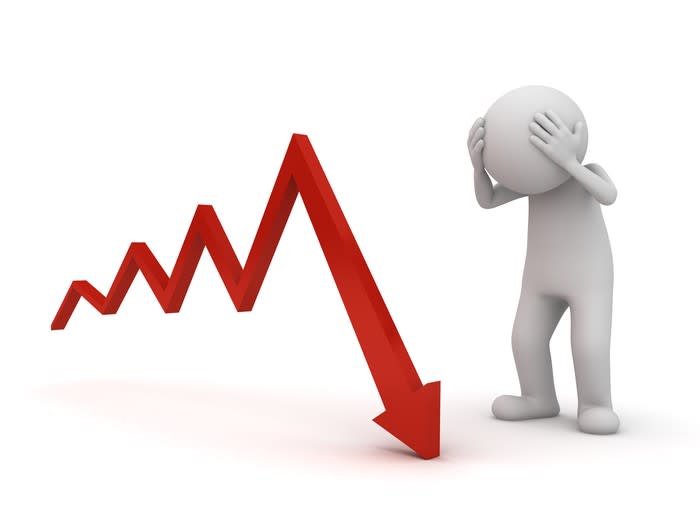Why Pitney Bowes Stock Dropped 8% Monday
What happened
In a surprise double-header announcement, postal services company Pitney Bowes (NYSE: PBI) issued a press release today stating that it has signed a definitive agreement to sell its software solutions business to big-data company Syncsort for $700 million.
In conjunction with this development, Pitney Bowes updated its guidance for this fiscal year, saying firmwide sales will now grow only 1% to 2%, with adjusted earnings per share of $0.65 to $0.75.
The stock first jumped nearly 20% on the news of the sale, then reversed course to close the day down 8.3%.

Image source: Getty Images.
So what
Why the abrupt change of heart among investors?
The initial enthusiasm appears tied to the price Pitney Bowes will get for the sold unit -- $700 million is more than two times sales for what's really a noncore business for Pitney Bowes. But to Syncort, the software solutions unit's focus on customer information and location intelligence services falls right in line with what it does as a big-data company. Compared with the less than 0.2 times sales valuation for Pitney Bowes stock as a whole, this seems a great valuation.
On the other hand, Pitney Bowes' new guidance implies that while sales will still probably grow at least as much as Wall Street has been predicting this year (1.2%), adjusted earnings will fall far short of the $0.90 per share that analysts have been estimating for the year.
Now what
In other words, Pitney Bowes basically paired the news of a smart divestiture with an earnings warning -- ruining the positive effect of its headline news.
Even so, I have to think that this news remains a net positive for Pitney Bowes: $700 million in cash could pay off as much as 20% of its $3.4 billion debt load. And management says it will in fact use "the majority of the net proceeds from the sale to pay down near-term debt maturities."
In exchange, all Pitney Bowes is losing is a division accounting for 10% of annual sales and a bit more than 10% of annual operating profit. That being the case, I have to think that today's sell-off is an overreaction.
More From The Motley Fool
Rich Smith has no position in any of the stocks mentioned. The Motley Fool has no position in any of the stocks mentioned. The Motley Fool has a disclosure policy.
This article was originally published on Fool.com


